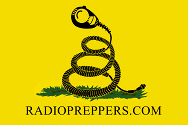AS you know, the United States recently had two major hurricane strike and particularly hard hit were regions of western North Carolina. That region is mountainous, with steep slopes and deep valleys: which resulted in at least 1400 land slides, and flood waters in the valleys, filled with trees, boulders and ten meter tall walls of mud, rock and trees moving at highway speeds. The resulting loss of electrical power, cell phones and internet left many people disoriented. My thoughts here focus on how to help non-radio family members during a black-out.
However, a few people posted their experiences and some things were food for thought:
1. Some people remembered "...an old battery [ AM/FM] radio" they had stored - somewhere. Some noted that theirs was a hand crank "Emergency radio" they had bought on Amazon, just-in-case.
2. In a total information black-out, having even limited AM/FM news and music was found to be very helpful. Remember, many people woke-up to no electrical power, no phones and etc. and had zero idea WHY this happened and when it might be fixed. Radio stations provided some of this information.
3. The feeling of NOT being isolated was a factor for many. To old people like me, the phone is a handy hindrance - at best. However, to many people, they live their lives throught their phones. Stepping back a generation in technology, yes it's not immediate connection with the outside world, but it IS 'a connection' and having a source of news and music that runs on handcrank recharged batteries or even JUST batteries was seen as very handy, regardless of generation.
4. Some of there radio have a small 'reading light' which was noted as being handy. My favorite little 'just in case radio, also had a single LED light and frankly, it is always in my daypack when I am away from home. It is not a handcrank radio, but it is rated to operate the radio at 40% volume for 150 hours on 2x AA batteries and I always carry spares. On earbuds it runs longer.
Radio Preppers is primarily an emergency 2 way radio communication website and most of us have ham radio equipment, BUT do you have at least one 'little plastic radio' as part of your emergency equipment? I do, and here is why; in an emergency like these just experienced, our non-hams are going to be a bit nervous, and while I would NOT put them onto my ham station, because it's too expensive and easy to misuse and damage. However, I can put a simple 'little plastic radio' into their hands, with a pencil and paper to listen to news, weather and etc. This would be useful to keep them occupied and for the group/family to gather news and information for us to ponder and discuss.
So, do you have a little plastic radio, perhaps a handcranked one? Does your family know how to operate it if you are not there?
Here in the USA, AM/FM are probable the minimum, I add shortwave and NOAA weather radio to basic requirements, if possible. However, the abasic AM/FM are most likely to be used by the average person for news and music.
de RadioRay ..._ ._
However, a few people posted their experiences and some things were food for thought:
1. Some people remembered "...an old battery [ AM/FM] radio" they had stored - somewhere. Some noted that theirs was a hand crank "Emergency radio" they had bought on Amazon, just-in-case.
2. In a total information black-out, having even limited AM/FM news and music was found to be very helpful. Remember, many people woke-up to no electrical power, no phones and etc. and had zero idea WHY this happened and when it might be fixed. Radio stations provided some of this information.
3. The feeling of NOT being isolated was a factor for many. To old people like me, the phone is a handy hindrance - at best. However, to many people, they live their lives throught their phones. Stepping back a generation in technology, yes it's not immediate connection with the outside world, but it IS 'a connection' and having a source of news and music that runs on handcrank recharged batteries or even JUST batteries was seen as very handy, regardless of generation.
4. Some of there radio have a small 'reading light' which was noted as being handy. My favorite little 'just in case radio, also had a single LED light and frankly, it is always in my daypack when I am away from home. It is not a handcrank radio, but it is rated to operate the radio at 40% volume for 150 hours on 2x AA batteries and I always carry spares. On earbuds it runs longer.
Radio Preppers is primarily an emergency 2 way radio communication website and most of us have ham radio equipment, BUT do you have at least one 'little plastic radio' as part of your emergency equipment? I do, and here is why; in an emergency like these just experienced, our non-hams are going to be a bit nervous, and while I would NOT put them onto my ham station, because it's too expensive and easy to misuse and damage. However, I can put a simple 'little plastic radio' into their hands, with a pencil and paper to listen to news, weather and etc. This would be useful to keep them occupied and for the group/family to gather news and information for us to ponder and discuss.
So, do you have a little plastic radio, perhaps a handcranked one? Does your family know how to operate it if you are not there?
Here in the USA, AM/FM are probable the minimum, I add shortwave and NOAA weather radio to basic requirements, if possible. However, the abasic AM/FM are most likely to be used by the average person for news and music.
de RadioRay ..._ ._
